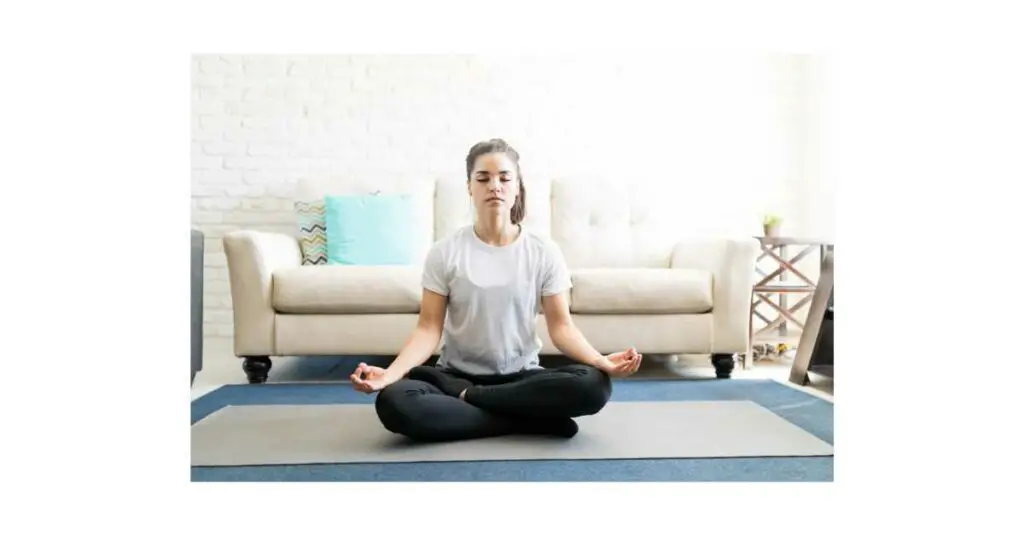Meditation is an ancient practice that has been used for centuries to achieve a state of relaxation and inner peace. But with our increasingly busy lives, it can be difficult to find the time to meditate. So when is the best time to do it?
The answer depends on your individual needs and lifestyle, but there are certain times of day that may be more beneficial than others. In this article, we’ll explore what those times might be and how you can make them work for you.
The best time to meditate is whenever works with your lifestyle and schedule, as long as you have a few moments of uninterrupted peace.
Some people prefer to meditate first thing in the morning while others find evening sessions more beneficial. Experiment to find which time of day works best for you.

What time is the best time to meditate?
1. Early Morning:
Meditating in the early morning hours is a great way to start your day off on a positive, grounded note. This is also a good time for those who want to stay awake and alert throughout the day.
Early morning may be the best time for many. It’s a great way to start the day with a sense of clarity and focus, plus it allows you to enjoy some peace and quiet before the hustle and bustle of the day begins. Studies have also found that morning meditations help reduce stress and anxiety throughout the day.
2. Mid-morning: If you don’t like getting up too early, mid-morning is a great time for meditation. It’s also beneficial for those who need to reset their focus and energy levels after breakfast.
3. Lunchtime: Meditation can be a great break from your daily routine, and lunchtime is the perfect opportunity to take a few moments for yourself. It’s also a good way to destress during your workday.
4. Afternoon:
This is a great time for those who need a mental break from the day’s activities. Meditation can help you clear your mind and recharge for the rest of the day.
If you’re unable to meditate in the morning, afternoon may be a better time for you. In the middle of the day, you’re typically free from pressing responsibilities and can take some time to relax and practice mindfulness.
5. Evening: Meditating in the evening can help you relax and unwind after a long day. It can also help you sleep better, as it helps to bring your body and mind into a calmer state.
6. Late Night: If you’re an insomniac, late night meditation may be beneficial for you. It can help relax your body and mind and prepare them for sleep.
Ultimately, the best time to meditate is whatever works best for you and your lifestyle. Experiment with different times of day to find when you feel most relaxed and able to focus on your practice. With consistent practice, you’ll soon reap the many benefits that come from regular meditation. Not only will it
The importance of scheduling a time for meditation
Making time for meditation is essential if you want to reap the benefits of this ancient practice. Scheduling a regular time each day to dedicate to your mediation practice can help ensure that it becomes a habit.
Having a set time makes it easier to commit and helps keep you motivated. It also allows you to plan ahead and make sure you won’t be disturbed during your session.
If you have trouble finding time to meditate, try setting an alarm or reminder on your phone or in a calendar app. This can help ensure that you remember to take the time for yourself each day.
Ultimately, when it comes to scheduling meditation, there are no hard and fast rules. Experiment with different times of day to find what works best for you and your lifestyle. Once you do, make it part of your daily routine and allow the practice to bring balance and peace into your life.
The benefits of regular meditation are immense, so don’t wait any longer—find a time that works for you and get started on your practice today. Good luck!
Is it okay to meditate while you are working if you don’t have time?
Yes, it is possible to meditate while you are working. This type of meditation, sometimes referred to as “mindful work,” can help improve concentration and productivity. It involves taking short breaks throughout the day to check in with your body and mind, allowing yourself a few moments of focused awareness and relaxation.
In order to practice mindful work, start by taking a few deep breaths and focusing on your body. Notice any sensations or feelings that come up without judgment. Then bring your attention back to the task at hand with an open mind, letting go of any distractions or stress.
Mindful work can help reduce stress and fatigue associated with long hours at the office. And if you don’t have time for a regular meditation practice, mindful work can provide you with many of the same benefits.
So if you don’t have time for an extended meditation session, it’s still possible to reap the rewards of mindfulness—you just need to find creative ways to practice throughout the day. Give it a try and see how it works for you!
What are the benefits of having a specific time for meditation?
Having a specific time for meditation has many benefits. Scheduling a regular time each day to dedicate to your mediation practice can help ensure that it becomes part of your daily routine and cultivate the habit you need to make steady progress with the practice.
Having set times also makes it easier to commit and helps keep you motivated, as well as allows you to plan ahead and make sure you won’t be disturbed during your session. It also gives you something to look forward to every day, making it more likely that you will stick with it in the long run.
Furthermore, scheduling specific times for meditation can help create consistency in your practice and allow your body and mind become familiar with the same sequence of relaxation and focus. The more you stick with the same schedule, the faster you will be able to reap the many benefits of meditation.
So if you’re looking to make your practice more regular and consistent, try scheduling a specific time each day for your mediation sessions. This can help make it easier to commit and stay motivated over time.
Is there ever a time when meditation is inappropriate?
While meditation is generally considered to be a positive practice that can improve mental, emotional and physical well-being, there are certain situations when it may not be appropriate.
For example, if you are feeling very distressed or overwhelmed by emotions such as fear, sadness or anger, it’s best to wait until these feelings have subsided before beginning your practice. Otherwise, you risk becoming too focused on difficult thoughts and feelings which can make it hard to focus on the present moment.
Additionally, if you are in an uncomfortable environment—such as a loud or noisy area—or if you feel unsafe in any way, meditation may not be suitable. In these cases, it is best to find somewhere peaceful where you can focus and relax.
While meditation can be beneficial in most situations, it is important to consider the context before beginning your practice. If you are feeling very emotional or uncomfortable, it may not be the best time to meditate—but don’t forget that you can always come back to your practice when conditions are more conducive.
If someone has trouble meditating, what strategies can they use?
If you’re having trouble meditating, there are several strategies that can help make the process easier and more enjoyable. First of all, try starting out with shorter sessions (5-10 minutes) so that it doesn’t feel too overwhelming or intimidating. You can gradually increase the duration as you become more comfortable with the process.
Secondly, give yourself permission to let go of expectations and just focus on the present moment without judgement or pressure. This can help you avoid getting caught up in perfectionism which can be an obstacle to successful meditation.
Thirdly, using visuals like a candle flame or deep breathing exercises can be helpful for those who find it hard to stay focused on their breath. Combining these visuals with slow, rhythmic breathing can help anchor your attention and make it easier to settle into the practice.
Finally, don’t forget that meditating is a skill that takes time and patience to master—so if you feel frustrated or distracted during a session, simply accept this as part of the process and come back to it when you’re ready.
Conclusion
Meditation is a valuable practice that can improve your overall wellbeing in numerous ways. Finding the best time to meditate can depend on your individual preferences, but setting specific times each day can help cultivate consistency and make it easier to stick with your practice. Finally, if you’re having trouble meditating, there are several strategies you can use to make the process more manageable. With patience and dedication, meditation can become an enjoyable part of your daily routine.




